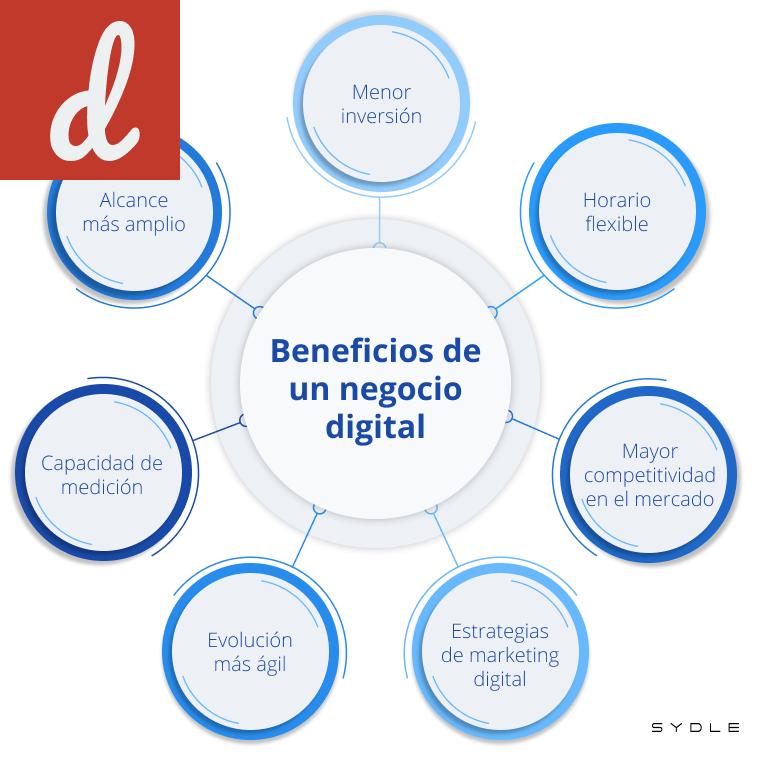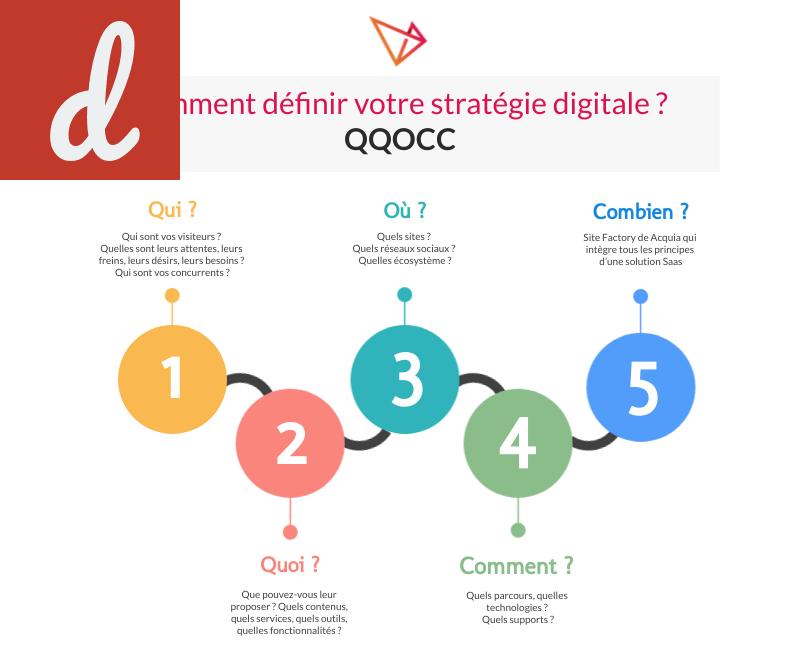Main Title: The Key Features of a Successful Digital Marketing Platform
Digital marketing has become an indispensable part of any business's marketing strategy in today's digital age. To succeed in this competitive landscape, businesses need a robust and comprehensive digital marketing platform. Such a platform should have certain key features that empower businesses to reach their target audience, engage with them effectively, and drive conversions. Let's explore the key features that make a digital marketing platform successful.
1. User-friendly interface: A successful digital marketing platform should have a user-friendly interface that is easy to use and navigate. The interface should enable marketers to quickly access and utilize various features without any technical expertise. A user-friendly interface ensures that marketers can streamline their marketing efforts and make data-driven decisions effortlessly.
2. Comprehensive analytics: Data is the backbone of any successful digital marketing campaign. A digital marketing platform should offer comprehensive analytics capabilities that provide insights into various important metrics such as website traffic, engagement rates, conversion rates, and more. These analytics enable marketers to measure the effectiveness of their campaigns and make informed decisions to optimize their strategies.
- List item 1: Tracking website traffic sources and user behavior.
- List item 2: Measuring engagement rates and conversion rates.
3. Multi-channel integration: A successful digital marketing platform should allow seamless integration with various marketing channels such as social media, email marketing, search engine optimization, and more. This integration enables marketers to manage their campaigns across multiple channels from a single platform, ensuring consistency in messaging and maximizing reach.
4. Personalization capabilities: Personalized marketing is the key to capturing the attention of modern consumers. A digital marketing platform should offer robust personalization capabilities that enable marketers to segment their audience and deliver tailored messages and offers. Personalization improves customer satisfaction and increases the likelihood of conversions.
5. Automation and workflow management: To save time and improve efficiency, a successful digital marketing platform should offer automation and workflow management capabilities. Automation allows marketers to automate repetitive tasks such as email campaigns, lead nurturing, and social media scheduling. Workflow management ensures smooth collaboration between team members and streamlines the marketing process.
6. Mobile optimization: With the majority of internet users accessing content through mobile devices, a successful digital marketing platform should be optimized for mobile. It should offer responsive designs and mobile-friendly features to provide a seamless experience to mobile users. Mobile optimization ensures that businesses can effectively reach and engage with their mobile audience.
Conclusion: A successful digital marketing platform is an essential tool for businesses in the digital age. It should have key features such as a user-friendly interface, comprehensive analytics, multi-channel integration, personalization capabilities, automation and workflow management, and mobile optimization. Investing in such a platform can empower businesses to effectively reach their target audience, drive engagement, and achieve their marketing goals.
Essential Features of a Successful Digital Marketing Platform
In today's fast-paced digital era, having a powerful digital marketing platform is essential for businesses to succeed. With the right tools and features, a digital marketing platform can help businesses effectively reach their target audience, boost brand visibility, and drive conversions. Here are some essential features that every successful digital marketing platform should have:
1. User-friendly Interface: A user-friendly interface is crucial for any digital marketing platform. It should have a clean and intuitive design that allows users to navigate easily and access the various features and tools without any hassle. This ensures that businesses can efficiently manage their marketing campaigns and make data-driven decisions.
2. Multiple Channel Integration: A successful digital marketing platform should provide integration with multiple marketing channels such as social media, email marketing, SEO, content marketing, and more. This allows businesses to streamline their marketing efforts, manage multiple campaigns from a single platform, and ensure consistent branding across different channels.
- List item 1: Integration with social media platforms like Facebook, Twitter, and Instagram enables businesses to schedule posts, track engagement, and analyze the performance of their social media campaigns.
- List item 2: Integration with email marketing platforms like MailChimp or Constant Contact allows businesses to create and manage email campaigns, track open and click-through rates, and segment their audience for targeted marketing.
3. Advanced Analytics and Reporting: A digital marketing platform should have robust analytics and reporting capabilities. It should provide detailed insights into campaign performance, audience behavior, conversion rates, and customer journey. This data helps businesses measure the success of their marketing efforts, identify areas for improvement, and make informed decisions about future campaigns.
4. Personalization and Automation: Personalization and automation are key features of a successful digital marketing platform. It should allow businesses to create personalized marketing campaigns based on user preferences, demographics, and behavior. Additionally, automation features such as trigger-based emails, lead nurturing workflows, and automated social media posting can save time and increase efficiency.
5. Mobile-Friendly: With over half of internet traffic coming from mobile devices, it is crucial for a digital marketing platform to be mobile-friendly. It should have responsive design and functionality, allowing businesses to manage their campaigns on-the-go and reach their mobile audience effectively.
6. Integration with CRM: Integration with a Customer Relationship Management (CRM) system is important for a digital marketing platform. It allows businesses to easily synchronize customer data, track leads, manage customer interactions, and provide personalized experiences. This integration ensures a seamless flow of information between marketing and sales teams, leading to more effective marketing campaigns and improved conversion rates.
Conclusion: A successful digital marketing platform combines powerful features, intuitive user interface, and advanced analytics to help businesses thrive in the digital landscape. By leveraging the right tools, businesses can attract, engage, and convert their target audience, ultimately driving growth and achieving their marketing goals.
Main Title: Key Elements to Look for in a Successful Digital Marketing Platform
In today's digital age, having a strong online presence is crucial for the success of any business. One of the most effective ways to achieve this is through digital marketing. With so many digital marketing platforms available in the market, it can be overwhelming to choose the right one for your business. In this article, we will discuss the key elements you should look for in a successful digital marketing platform.
A successful digital marketing platform should have user-friendly interface. This means that it should be easy to navigate and understand. The platform should provide a seamless experience for both marketers and users. It should have a clean design and intuitive features that can be easily understood and utilized by users of all levels of expertise.
Integration is another key element to consider. A good digital marketing platform should seamlessly integrate with other tools and systems such as customer relationship management (CRM) software, email marketing tools, and analytics platforms. This will enable you to streamline your marketing efforts and have a centralized system for tracking and analyzing your campaigns.
Personalization is a crucial element in a successful digital marketing platform. It should offer advanced targeting and segmentation capabilities that allow you to tailor your campaigns to specific target audiences. This will help you deliver personalized and relevant content, resulting in higher engagement and conversions.
- Scalability is another important factor. A good digital marketing platform should be able to grow with your business. It should have the capability to handle increasing traffic and data without compromising on performance. Ensure that the platform you choose can accommodate your future growth needs.
- One of the most valuable features of a digital marketing platform is analytics and reporting. It should provide you with detailed insights and analytics on the performance of your campaigns. The platform should offer customizable reports, real-time data, and easy-to-understand visualizations that enable you to make data-driven decisions and optimize your marketing strategies.
Customer support is also a critical element to consider. Look for a digital marketing platform that offers responsive customer support. This will ensure that you have access to assistance and guidance when you need it, especially during critical times or when facing technical issues.
In summary, when choosing a digital marketing platform, look for key elements such as a user-friendly interface, integration capabilities, advanced targeting and segmentation, scalability, analytics and reporting, and reliable customer support. By considering these elements, you can select a successful digital marketing platform that aligns with your business goals and helps you achieve digital marketing success.

Must-Have Features for a Successful Digital Marketing Platform
In today's competitive landscape, having a strong digital marketing platform is essential for businesses to stay ahead of the game. With an increasing number of consumers turning to the internet for their purchasing decisions, a well-optimized and user-friendly digital marketing platform can help businesses reach their target audience effectively. Here are some must-have features that every successful digital marketing platform should possess:
1. Responsive Website Design
A responsive website design is crucial for any digital marketing platform. With the rise of mobile usage, it is important that your website adapts seamlessly to different screen sizes and devices. A responsive design ensures that your website looks great and functions properly on smartphones, tablets, and desktops, providing a seamless user experience regardless of the device being used.
2. Content Management System
A robust content management system (CMS) is another essential feature of a successful digital marketing platform. A CMS allows businesses to easily create, edit, and manage the content on their website. Whether it's publishing blog posts, updating product descriptions, or adding new pages, a CMS makes it simple for businesses to keep their website up to date and relevant.
3. Search Engine Optimization (SEO) Tools
Optimizing your website for search engines is crucial for driving organic traffic. A digital marketing platform should provide built-in SEO tools that allow businesses to optimize their website's meta tags, keywords, URLs, and other on-page elements. These tools should also provide insights and recommendations on how to improve the website's visibility in search engine results pages.
4. Social Media Integration
Social media has become an integral part of digital marketing strategies. A successful digital marketing platform should integrate social media platforms seamlessly, allowing businesses to easily manage and schedule their social media posts. This integration should also provide analytics to track the performance of social media campaigns, allowing businesses to make data-driven decisions.
- 5. Email Marketing
- Integration
Email marketing remains one of the most effective ways to nurture leads and engage with customers. A digital marketing platform should have built-in email marketing integration, allowing businesses to create and send targeted email campaigns. The integration should also provide features such as contact management, automated email workflows, and analytics to track the success of email campaigns.
6. Analytics and Reporting
Understanding the performance of your digital marketing efforts is crucial for making informed decisions. A successful digital marketing platform should provide comprehensive analytics and reporting features. This includes tracking website traffic, user behavior, conversion rates, and other key metrics. Armed with this data, businesses can identify what is working and what areas need improvement, ultimately optimizing their digital marketing strategies.
Conclusion
In today's digital age, a successful digital marketing platform is essential for businesses looking to grow and thrive. By incorporating responsive website design, a powerful content management system, SEO tools, social media integration, email marketing integration, and robust analytics and reporting, businesses can build a strong online presence and effectively engage with their target audience. Investing in these must-have features will undoubtedly help businesses stay competitive and achieve their marketing goals.
Main Title: The Building Blocks of a Successful Digital Marketing Platform
The world of digital marketing is constantly evolving. With each passing day, new strategies and trends emerge, making it essential for businesses to adapt and stay ahead of the competition. To thrive in the digital landscape, organizations must build a strong foundation by implementing the right tools and techniques. In this article, we will discuss the building blocks of a successful digital marketing platform.
One of the key components of a successful digital marketing platform is search engine optimization (SEO). SEO helps businesses increase their visibility on search engines, driving organic traffic to their websites. By optimizing their websites and content, businesses can rank higher on search engine results pages. Keyword research, on-page optimization, and link building are some of the essential SEO techniques that can help businesses improve their search engine rankings.
Content marketing is another crucial building block of a successful digital marketing platform. Producing high-quality, informative, and engaging content helps businesses connect with their target audience. By creating valuable content, businesses can establish themselves as industry experts and build trust with their customers. Additionally, content marketing plays a significant role in SEO, as search engines prioritize websites that offer valuable content to users.
- Social media marketing is an integral part of any digital marketing platform. With billions of people using social media platforms, businesses have a vast pool of potential customers to tap into. By creating compelling social media campaigns, businesses can reach their target audience and boost brand awareness. Engaging with followers, running targeted ads, and analyzing social media metrics are some effective strategies for successful social media marketing.
- Email marketing is a cost-effective and efficient way for businesses to communicate with their customers. By building an email list and sending targeted emails, businesses can nurture leads, increase conversions, and drive traffic to their website. Personalization, segmentation, and automation are key elements of successful email marketing campaigns.
Analytics and data play a crucial role in digital marketing success. By analyzing user behavior and campaign performance, businesses can gain valuable insights and make data-driven decisions. Tools like Google Analytics and social media analytics platforms provide businesses with detailed information about their audience, helping them optimize their marketing efforts for maximum results.
In conclusion, building a successful digital marketing platform requires the right tools and techniques. Search engine optimization, content marketing, social media marketing, email marketing, and analytics are key building blocks for businesses to thrive in the digital landscape. By implementing these building blocks effectively, businesses can drive traffic, boost conversions, and achieve their marketing goals.



Dec 30, 2023 says :
Boosting Sales With The Power Of Digital Marketing: An Insightful Guide